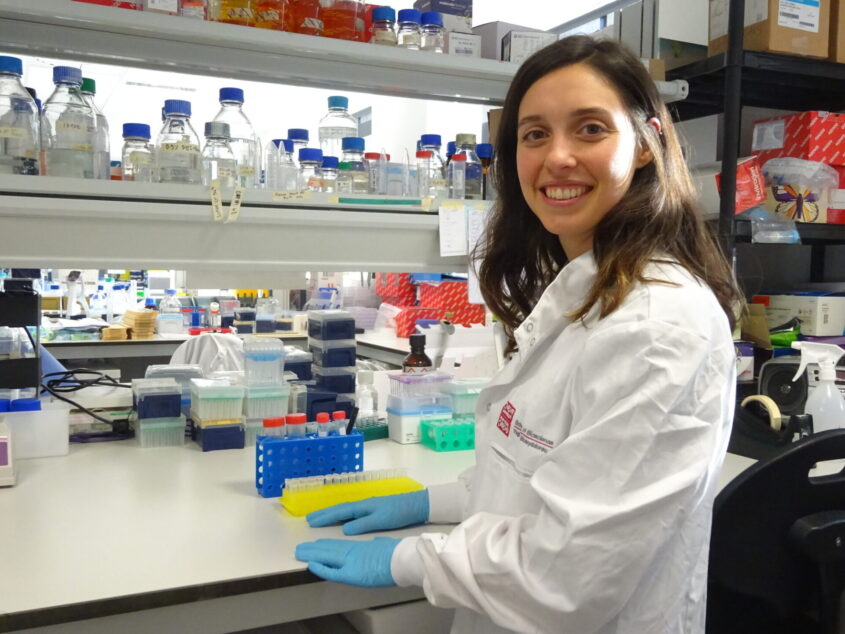Researcher: Dr Beatriz Salvador
Location: Cardiff University
Date: September 2024
Project status: Ongoing
Investigating the very early stages of pancreatic cancer
The challenge
Over 90% of all cases of pancreatic cancer begin with changes, or mutations, to a gene called KRAS. These changes cause normal cells of the pancreas to turn into abnormal, pre-cancerous cells that can form clusters and may eventually develop into pancreatic cancer. This process of tumour development from these very early changes may take as many as 10 years. Understanding more about this progression could open up a large window of opportunity to detect pancreatic cancer at a much earlier stage.
The project
Recent research has found that pre-cancerous growths in the pancreas contain both cells that have KRAS mutations, and those that do not. This interesting discovery suggests that both types of cells may be needed for a pancreatic cancer tumour to develop.
In this project, Dr Salvador and her team will study these findings further to find out how cells with changes to KRAS interact with other cells around them to form pre-cancerous growths and eventually pancreatic cancer. They hope that learning more about how different types of cells interact in the early stages of pancreatic cancer could help to detect the disease at a much earlier stage.
The hope
Studying the early changes that take place in the pancreas years before a tumour even has a chance to develop could give us an exciting opportunity to one day stop the disease in its tracks at the very earliest stages. Not only could this help detect the deadliest common cancer, but it could also open the door for more effective, targeted treatments.
“We are studying what makes the disease begin, and this knowledge will help us develop tests that can spot people who are at high risk of developing cancer. If we can find the cancer before it starts, we might be able to prevent it.”
Dr Beatriz Salvador



